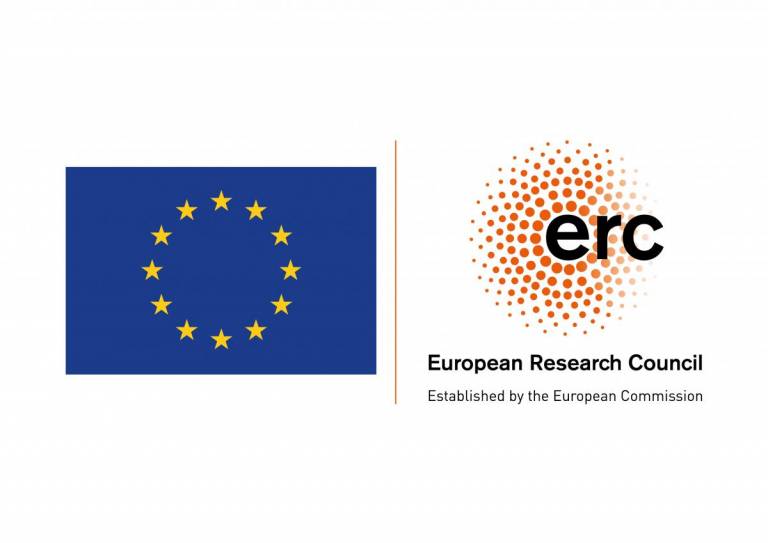Sex-specific demography and the evolution of gender-biased harmful cultural practices
This project is funded by the European Research Council (ERC) under the European Union’s Horizon 2020 research and innovation programme (Advanced Grant No. 834597) and is led by Prof Ruth Mace.
Project description
Cultural practices that are harmful to one sex, but favour the other, are the focus of intense interest in the public eye, the social sciences and the evolutionary human sciences. The foundational work of Hamilton, Bateman and Trivers, showed how kin selection theory provides a framework for understanding the evolutionary basis of conflicts of interest between the sexes and between parents and offspring. Many gender-biased practices do not seem to fit the classic model of sexual conflict, in which males exploit females for their own mating advantage. We are exploring an alternative explanation, which is sex-specific demography. This framework refocuses attention away from sexual selection, towards patterns of cooperation and conflict within families. If one sex disperses at marriage, that generates sex and age-based asymmetries in relatedness in residential groups, but few theoretical models, or empirical studies, have examined how such demographic effects could explain the origins of gender-biased cultural behaviour. EvoBias will develop and test new evolutionary demographic models that will focus on the role of sex-ratios, sex-biased dispersal and some modes of marriage, in generating gender-biased harmful cultural practices. The behaviours to be studied include: female-biased workloads, witchcraft accusation, sending men to war, sending boys into monastic life, bride-capture and the ‘honour’ killing of women by their own kin. These represent both social issues and evolutionary puzzles. The diverse kinship systems in east and central Asia and sub-Saharan Africa provide opportunities to test these hypotheses. Through a combination of mathematical modelling, comparative studies using the literature and field-based sociodemographic studies, the team will seek evidence that sex-specific demography underpins these gender-biased harmful cultural traditions.
- People
- Prof. Ruth Mace, PI

- Dr Alberto Micheletti, Research Fellow

- Dr Sarah Peacey, Research Fellow

- Dr Naerhulan Halimubieke, Research Fellow
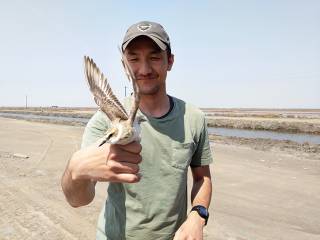
- Olympia Campbell, PhD student

- Yuan Chen, PhD student

- Erhao Ge, PhD student

- Dr Megan Arnot, Lecturer (Teaching)

- Visitors
- Dr QiaoQiao He, Shenyang Normal University, China

- Baihui Wu, Fudan University, China

- CaiRangDongZhi, Lanzhou University, China

- Publications
2024
Andrighetto G, Gavrilets S, Gelfand M, Mace R, Vriens E (2024). Social norm change: drivers and consequences Phil Trans R Soc Lond B Biol Sci 379(1897)
He Q-Q, Yu J-R, Tang S-H, Wang M-Y, Wu J-J, Chen Y, Tao Y, Ji T, Mace R (2024). Jeans and language: kin networks and reproductive success are associated with the adoption of outgroup norms Phil Trans Roy Soc B: Biological Sciences 379(1897)
Micheletti AJC, Mace R. Sibling competition and dispersal drive sex differences in religious celibacy Evolution and Human Behavior
2023
Brandl E, Emmott EH, Mace R. Adoption, Fostering, and Parental Absence in Vanuatu Human Nature
CaiRangDongZhi, Ge, E., Du, J., & Mace, R. (2023). Sex differences in costly signaling in rural Western China. Evolution and Human Behavior
Du J, Huang Y, Bai P-P, Zhou L, Myers S, Page AE, Mace R. Post-marital residence patterns and the timing of reproduction: evidence from a matrilineal society Proceedings of the Royal Society B: Biological Sciences
Micheletti AJC, Brandl E, Zhang H, Peacey S, Mace R. Cultural Evolution Research Needs to Include Human Behavioural Ecology In Synthese Library. 478: 501-528
Micheletti AJC, Ge E, Zhou L, Chen Y, Du J, Mace R (2023). Studying human culture with small datasets and evolutionary models Proceedings of the Royal Society B: Biological Sciences
Natterson-Horowitz B, Aktipis A, Fox M, Gluckman PD, Low FM, Mace R, Read A, Turner PE, Blumstein DT (2023). The future of evolutionary medicine: sparking innovation in biomedicine and public health Frontiers in Science
Yuan Chen, Erhao Ge, Liqiong Zhou, Juan Du & Ruth Mace (2023). Sex inequality drive by dispersal. Current Biology
2022
Campbell OLK*, Mace R (2022). Different predictors of intimate partner and natal family violence against women. Evolution, Medicine, and Public Health, 10(1), pp. 231–242
Ge, E., CaiRangDongZhi. & Mace, R. Religiosity structures social networks in a Tibetan population. (2022)
He, Q.-Q., Rui, J.-W., Zhang, L., Tao, Y., Wu, J.-J., Mace, R., & Ji, T. (2022). Communal breeding by women is associated with lower investment from husbands. Evolutionary Human Sciences. Cambridge Core. Cambridge University Press
Ji T*, Zhang H, Pagel M, Mace R* (2022). A phylogenetic analysis of dispersal norms, descent and subsistence in Sino-Tibetans. Evolution and Human Behaviour.
Micheletti AJC*, Brandl E*, Mace R* (2022) What is cultural evolution anyway? Behavioural Ecology, arac011
Micheletti AJC†, Ge E†, Zhou L†, Chen Y, Zhang H, Du J, Mace R*. (2022) Religious celibacy brings inclusive fitness benefits Proc. R. Soc. B. 2892022096520220965
Micheletti, Alberto J. C.; Ge, Erhao; Zhou, Liqiong; Chen, Yuan; Zhang, Hanzhi; Du, Juan; Mace, Ruth (2022) Supporting Information from Religious celibacy brings inclusive fitness benefits. Proceedings Royal Society B
Peacey S, Campbell OLK, Mace R* (2022). Same-sex competition and sexual conflict expressed through witchcraft accusations. Scientific Reports, 12(6655)
Zhou L†,*, Ge E†, Micheletti AJC, Chen Y, Du J, Mace R* (2022) Monks relax sibling competition over parental resources in Tibetan populations, Behav Ecol, arac059
2021
Hanzhi Zhang, Ruth Mace (2021) Cultural extinction in evolutionary perspective. Evolutionary Human Sciences
Olympia L K Campbell, David Bann, Praveetha Patalay (2021) The gender gap in adolescent mental health: A cross-national investigation of 566,829 adolescents across 73 countries. SSM - Population Health
2020
Hanzhi Zhang, Ting Ji, Mark Pagel, Ruth Mace (2020) Dated phylogeny suggests early Neolithic origin of Sino-Tibetan languages. Scientific Reports
† contributed equally; * corresponding author
- Outreach
Ruth Mace. (2022) How did the patriarchy start and will evolution get rid of it? The Conversation.
Mace R (2022). Interview in The Conversation Weekly — Discovery podcast.
Mace R, Micheletti AJC (2022). Celibacy: its surprising evolutionary advantages — new research. The Conversation.
- News
Follow us on Twitter and find our stories on the UCL Evolutionary Anthropology blog.
- Events
Workshop "Researching sensitive topics in the quantitative social sciences"
Mon 17 Apr 2023, 10:00 – Tue, 18 Apr 2023, 14:00 BST
Sensitive topics include subjects such as mental health, witchcraft accusations, racism, forced marriage, son preference, bodily mutilation, some aspects of religion and violence. These topics are often associated with harm and receive focus from governments, charities, activists, and researchers in order to alleviate some of this harm. As social scientists we are particularly focused on elucidating the causes and mechanisms of cultural behaviours, often, but not always, with the outlook that this may go on to influence policy makers and interventions.
However, sensitive topics are difficult to study. Firstly, their sensitivity raises additional ethical considerations when planning research, particularly if the research puts participants at risk, or if the subject matter is illegal. Secondly, data collection can be extremely difficult if study participants conceal their true beliefs about a sensitive topic or report incorrect information about their behaviour. This workshop aims to bring together experts from multiple disciplines and from the policy and charity sector to discuss three broad and related questions.
- How should researchers approach the ethics of studying sensitive topics
- How can we measure and collect accurate data
- How should researchers frame and present results
Objectives
- To advance discussion on best practices for researching sensitive topics
- To facilitate conversation between non-academics and academics, to gain insight on ethics and data collection
Some images from the event below (Photo Credit: Reuben Fakoya-Brooks)
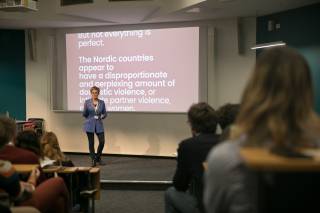
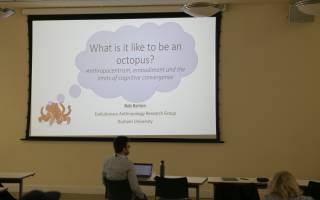
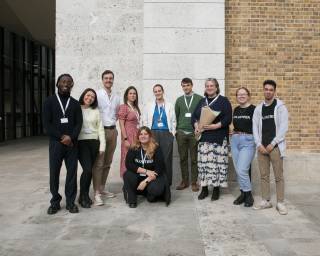
 Close
Close


